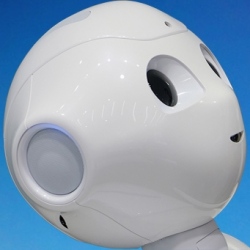
"AI will be a net job creator starting in 2020," said Peter Sondergaard at Gartner Symposium. Gartner’s research chief couldn’t have opened the company’s flagship conference with a more astounding proclamation. The question of how AI will affect jobs has been one of the darkest shadows looming over the 21st century.
Songergaard stated that by 2020 AI will automate 1.8 million people out of work, but it will create 2.3 million jobs. So, AI will drive a net gain of 500,000 new jobs.
Neither Sondergaard nor the two Gartner analysts who did deep dives on the concepts in the opening keynotes—Tina Nunno and Leigh McMullen—explained the math or the methodology of how Gartner arrived at its AI jobs numbers. TechRepublic is following up with Gartner to get more details.
However, a big part of Gartner’s underlying assumptions is that AI is going to play a complementary role to a lot of workers. It will make them faster, more efficient, and more productive, Gartner argues.
"Some people will be AI’d out of a job," said Nunno, "but the real secret here is AI augmenting people."
In fact, the value of people was a surprisingly central theme for the opening keynote of a technology conference, and a departure from recent years when themes such as cloud computing, big data, artificial intelligence, and digital transformation took center stage.
In the first few minutes of his presentation on Monday, Sondergaard stated, "Talent and culture are the top challenges for all functional leaders."
He went on to show discouraging data on how finding tech talent is getting harder than ever, especially for high-demand skills like data science and cybersecurity. But, the Gartner analyst also stressed that leaders need to get more creative in finding hidden talents and capabilities in existing staff, giving contractors a shot at stepping in, renting talent, looking for talent in non-traditional places, and using AI to enhance workers.
"The secret to digital is analog," added Nunno. "It’s people."
She said, "Think of artificial intelligence as scaling people."
